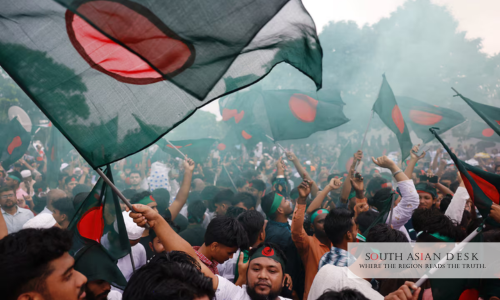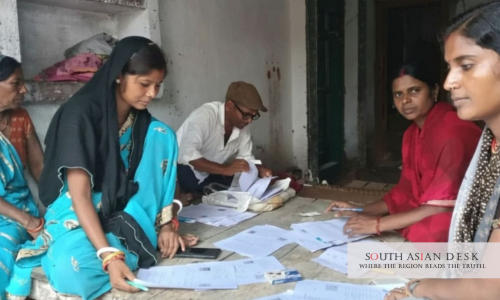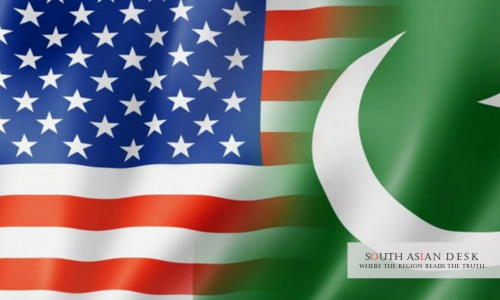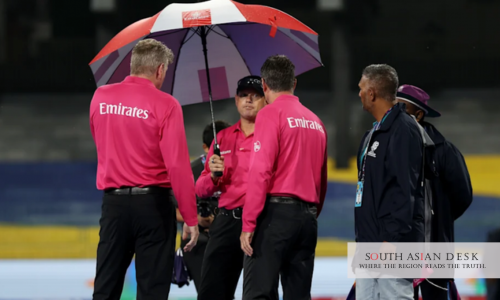Dhaka, Bangladesh (South Asian Desk) – Bangladesh July Charter signed on Friday by 24 political parties advances state reforms post-2024 uprising. The event unfolded amid protests in Dhaka. Who: Interim government under Muhammad Yunus. What: Charter endorsement. When: October 17, 2025. Where: National Consensus Commission venue. Why: Pave way for February 2026 polls. How: Negotiated pledges on constitutional changes.
The Bangladesh July Charter signed event highlights fragile consensus in a nation rebuilding after turmoil. For South Asia, it tests democratic transitions amid youth activism echoes in Pakistan and India. Success could stabilise borders and trade. Failure risks renewed unrest, straining regional forums like SAARC. Yunus’s interim setup eyes inclusive governance, influencing neighbours’ reform models.
Reform Charter Bangladesh Parties Endorse Amid Tensions
Political leaders gathered at the National Consensus Commission headquarters. They affixed signatures to the 84-point July Charter. Chief Adviser Muhammad Yunus hailed the moment. “It is a great day. It gives me goosebumps. Today is the day of a new birth. We have introduced a New Bangladesh through the signing,” Yunus said.
The document outlines reforms in politics and institutions. It classifies 47 points for constitutional amendments. The remaining 37 target laws, ordinances, and executive orders. Parties pledged no court challenges to its legality. They committed to enshrining it in the constitution.
BNP Secretary General Mirza Fakhrul Islam Alamgir signed on behalf of his group. “A new chapter began in Bangladesh’s political history through the signing of the July Charter,” he stated. Jamaat-e-Islami’s Nayeb-e-Ameer Syed Abdullah Muhammad Taher added: “If the national charter we signed today is implemented, it will bring a qualitative change in our politics.”
Twenty-four entities endorsed it. These included BNP, Jamaat-e-Islami, Liberal Democratic Party, Khelafat Majlish, and Gono Odhikar Parishad. Regional outfits like Islami Andolon Bangladesh and Zaker Party joined. The commission finalised the draft on October 14 after three negotiation rounds.
Last-minute tweaks addressed protester demands. Additions covered legal indemnity and victim justice. This responded to calls from July uprising families.
Students Boycott July Charter Over Legal Gaps
The National Citizens Party led the boycott. NCP convener Nahid Islam criticised the process. “The signing of the July Charter by a few political parties does not constitute national unity,” he said. The group cited missing legal frameworks and binding guarantees.
Ariful Islam Adeb, NCP senior joint convener, posted on Facebook: “Since this signing ceremony will not achieve any legal basis, this is only a formality.” Khaled Saifullah, joint convener, added: “If the implementation framework is finalised and the fundamental reforms are safeguarded, NCP will sign.”
Students formed NCP after the 2024 protests. They drove Hasina’s ouster. Their absence undercut the ceremony’s optics. Yunus noted the gap. Law Adviser Dr Asif Nazrul echoed: “I’m very happy. I would have felt even better if the NCP student leaders, those who led the July movement, had been present.”
Protests erupted outside. Families of uprising victims rallied. Police deployed batons, tear gas, and stun grenades. Witnesses reported injuries. The clashes marred the signing.
Leftist Groups Reform Charter Absence Signals Divisions
Four leftist parties also stayed away. These were Communist Party of Bangladesh, Bangladesher Samajtantrik Dal, Bangladesh JSD, and Bangladesher Samajtantrik Dal (Marxist). They opposed clauses altering constitutional principles.
The groups rejected changes to democracy, socialism, secularism, and nationalism. They viewed pledges against future legal challenges as undemocratic. “They cannot sign any charter, even with a note of dissent, that commits to changing the constitution’s four fundamental principles,” reports stated.
Gono Forum attended but refrained from signing. Mizanur Rahman, its general secretary, explained: “We were assured amendments would be made, but at the event, we were given only the page for the signature, not the final copy of the charter.” The party sought retention of the Proclamation of Independence.
Consensus Commission Vice-Chairman Ali Riaz defended the effort. “This national charter is not merely an accord among political parties. It is a social contract between citizens, the political parties and the State,” he said. He warned: “A document alone will not guarantee success. We still have a long way to go.”
BNP and allies lodged dissents on nine issues. These covered referendum timing and procedures. Parties agreed on a vote for constitutional tweaks but deferred details.
Yunus praised the commission. “The members of the consensus commission will be remembered in history. Their names will endure,” he remarked. He lauded nationwide debates. “The political consensus on complex national issues achieved by Bangladesh could become an example worldwide.”
The charter vows justice for Hasina-era abuses. It targets disappearances, killings, and torture. This extends to 2024 uprising victims, numbering around 1,500 dead.
Background: Bangladesh July Charter Signed
The July Charter stems from 2024 quota protests. Students demanded merit-based jobs. Clashes escalated into anti-Hasina fury. Security forces killed over 1,500. Hasina fled to India on August 5, 2024.
Yunus assumed charge as interim leader. His government formed the commission in late 2024. It engaged 30 parties over months. Talks yielded the blueprint by September 10.
Anniversary events marked August 5, 2025. Crowds waved flags at Manik Mia Avenue. Yunus’s team prioritised elections by February 2026.
Pre-signing, Yunus met parties on October 15. “The election is a part of the July Charter. If the voting is not fair, the July Charter will lose its value,” he told them. He urged signatures for a festive poll.
What’s Next: Implementation Hurdles Ahead
Reforms now face execution tests. Non-constitutional changes roll out via ordinances. Constitutional ones head to referendum. Timing remains unsettled.
Yunus stressed changes in national life. “We have to bring changes in our national life. Changes have to be made in our constitution and in running the government,” he said. The nation owes the July fighters eternally.
Leftists and students may rejoin if frameworks solidify. Gono Forum eyes future tweaks. Police vigilance persists amid protest risks.
The Bangladesh July Charter signed stands as a tentative pact. It charts renewal yet exposes rifts. Full buy-in could cement stability. Partial adherence invites backlash.
Published in SouthAsianDesk, October 18th, 2025
Follow SouthAsianDesk on X, Instagram, and Facebook for insights on business and current affairs from across South Asia.






